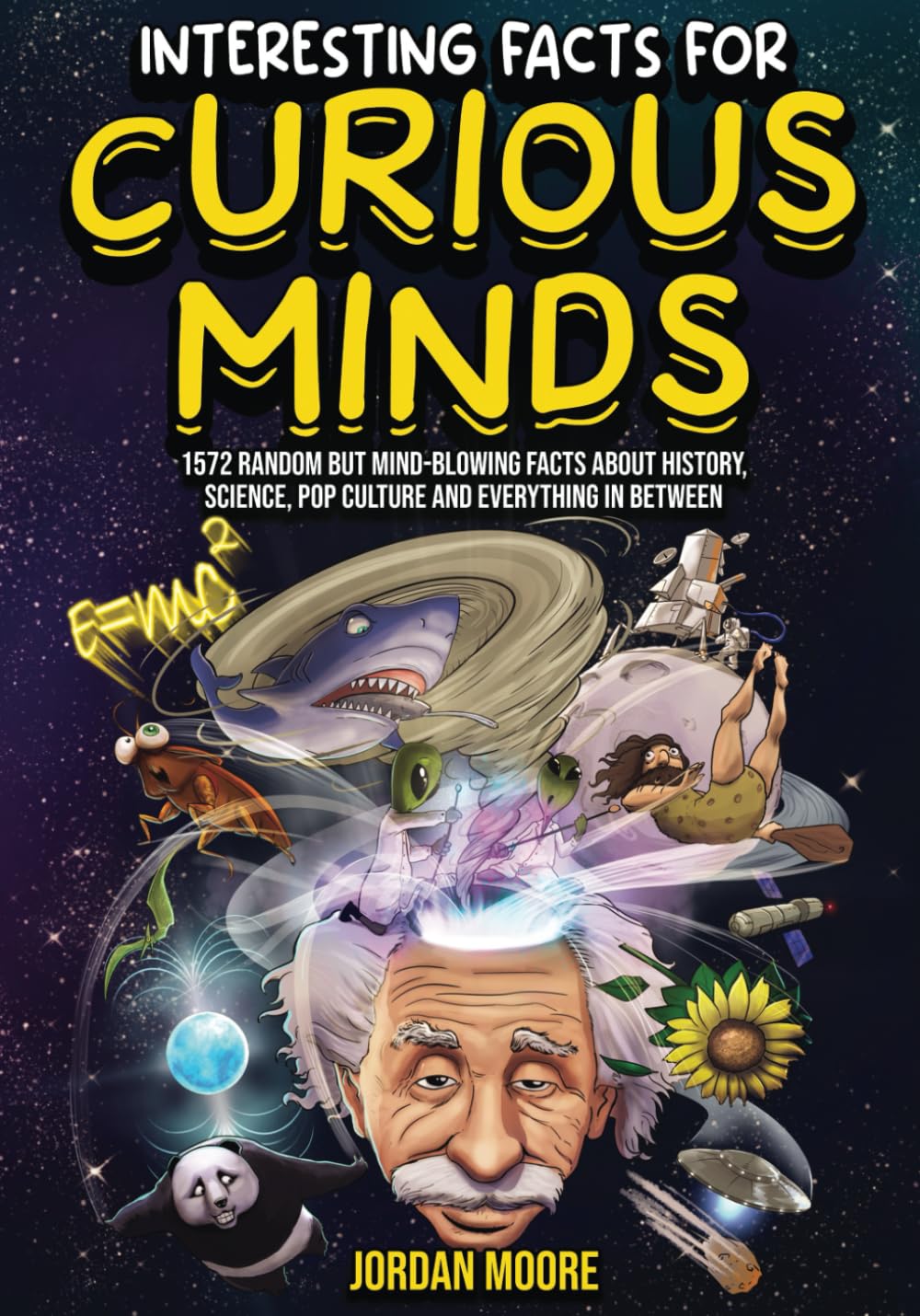
Interesting Facts For Curious Minds: 1572 Random But Mind-Blowing Facts About History, Science, Pop Culture And Everything In Between
Introduction
byIntroduction to Interesting Facts for Curious Minds is the perfect gateway for anyone fascinated by the oddities and complexities of our world. If you’re someone who enjoys diving deep into seemingly obscure topics, then this book will provide hours of entertainment and education. It explores a wide range of subjects, from the peculiar history of alligator dung being used as a medical remedy to the transformation of marriage into the institution it is today. Additionally, the book sheds light on modern phenomena such as cryptocurrency—its origins, how it operates, and its growing impact on the global economy. With 1,572 thought-provoking factoids, this book serves as a treasure trove of fascinating knowledge, making it a perfect companion for anyone eager to learn about the weird and wonderful aspects of our world.
The structure of this book makes it easy to explore different topics at your own pace. The 1,572 facts are divided into 63 chapters, each dedicated to a unique subject. In each chapter, you’ll find 25 facts, each one carefully curated to inform, surprise, and entertain. Whether you’re curious about the world of science, fascinated by historical events, or intrigued by pop culture, the book covers a broad spectrum of subjects that will cater to various interests. One of the best features of the book is its flexible reading style. You can choose to read it from beginning to end, immersing yourself in one fact after another, or you can skip to chapters that spark your curiosity. No matter how you approach it, the content is designed to keep you engaged and entertained.
What makes this book truly special is how it can serve as a conversation starter. Whether you’re at a social gathering, a family dinner, or a friendly quiz night, the interesting facts within the book are bound to spark lively discussions. It’s the ideal tool to break the ice, impress your friends with a random bit of trivia, or challenge someone to a friendly competition. The beauty of Interesting Facts for Curious Minds lies in its versatility—it’s not just a collection of fun facts but a catalyst for meaningful conversations and connections. Imagine you’re at a dinner party, and the topic turns to geology. You casually drop in the fact that there’s a difference between igneous and metamorphic rocks, and suddenly your best friend reveals she’s a rock expert! It’s these little moments that make the book more than just reading material; it’s a bridge to learning more about the people around you.
In addition to being a source of entertainment, this book also offers an enriching experience that goes beyond surface-level trivia. The facts provided range from odd historical anecdotes to breakthroughs in science, shedding light on the unknown and unexplained. For instance, did you know that in 2008, Zimbabwe experienced inflation so severe that it reached 6.5 sextillion percent? This mind-boggling statistic underscores the power and fragility of economies, highlighting the delicate balance between financial systems and the consequences of mismanagement. By including such extreme examples, the book provides not just fun facts but a deeper understanding of the real-world issues that shape history and influence our everyday lives.
Furthermore, the book’s exploration of pop culture offers readers a fun, lighthearted look into the world of entertainment. From the names of famous characters to the quirks of well-known celebrities, these sections are guaranteed to amuse and educate. Whether you’re a film buff or a lover of music, you’ll find interesting facts that tie into the global cultural landscape. For example, did you know that the iconic characters in Star Wars were named after musical instruments? The band that played in the Mos Eisley Cantina scene had instruments with names like the “kloo horn,” a clarinet-like instrument that added a unique element to the film’s sound. These quirky connections between music and film highlight the importance of creative input in entertainment and offer fans a fresh perspective on their favorite franchises.
The power of Interesting Facts for Curious Minds goes beyond providing just random tidbits of knowledge—it encourages critical thinking and sparks curiosity about the world around us. It challenges readers to question the status quo, look deeper into history, and engage with the material in a meaningful way. By diving into the facts, you’re not just learning random pieces of trivia; you’re connecting the dots between events, ideas, and cultures that shape the world. The engaging style of the book makes it accessible for all types of readers, whether they’re young and curious or seasoned trivia enthusiasts. It’s an excellent resource for anyone who enjoys learning in bite-sized chunks, ready to be shared in conversations or used to inspire further exploration.
In conclusion, Interesting Facts for Curious Minds is much more than just a collection of fascinating tidbits; it is a tool for engaging with the world, expanding one’s knowledge, and forming deeper connections with others. Whether you read it all at once or dip in and out as the mood strikes, the facts within will leave you more informed and entertained. This book is perfect for anyone who enjoys uncovering hidden gems of knowledge, learning something new every day, and sparking insightful discussions. From the mysteries of history to the wonders of science and the eccentricities of pop culture, it offers a little bit of everything for everyone, ensuring that curiosity never runs dry.

